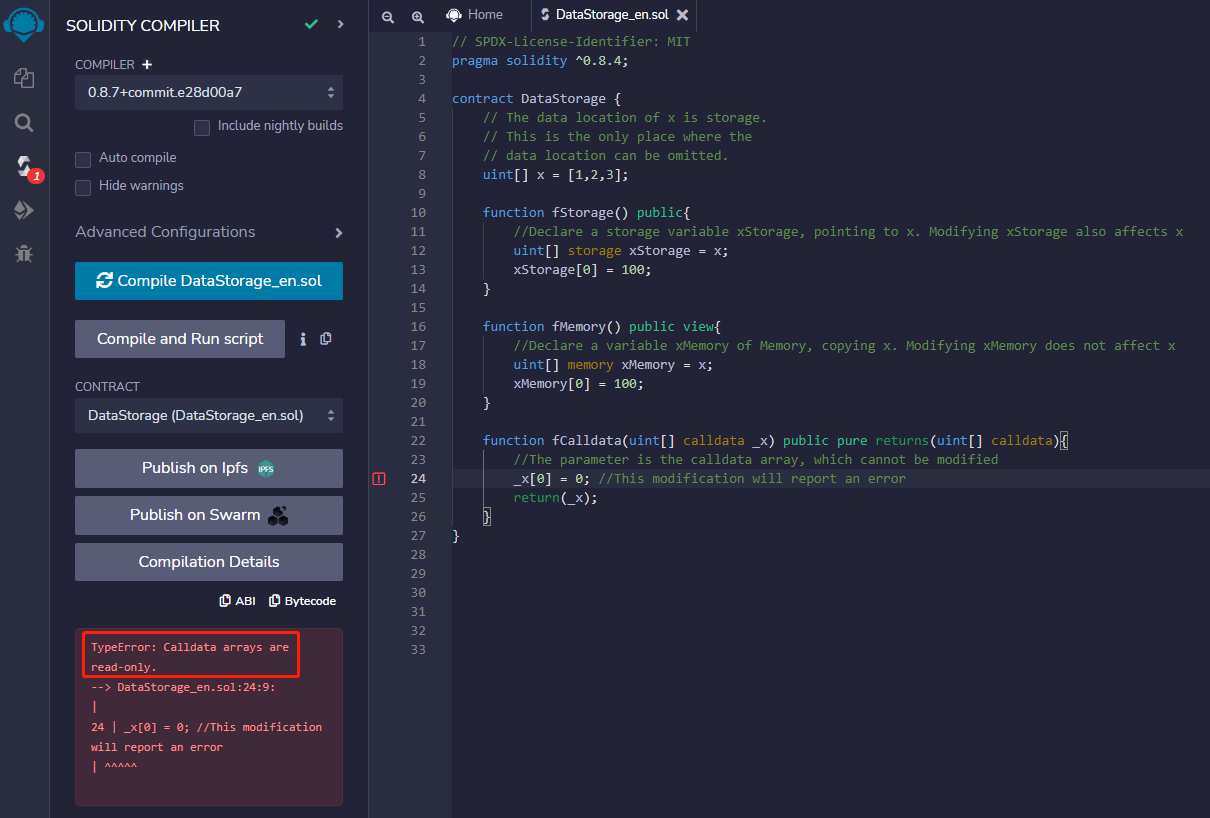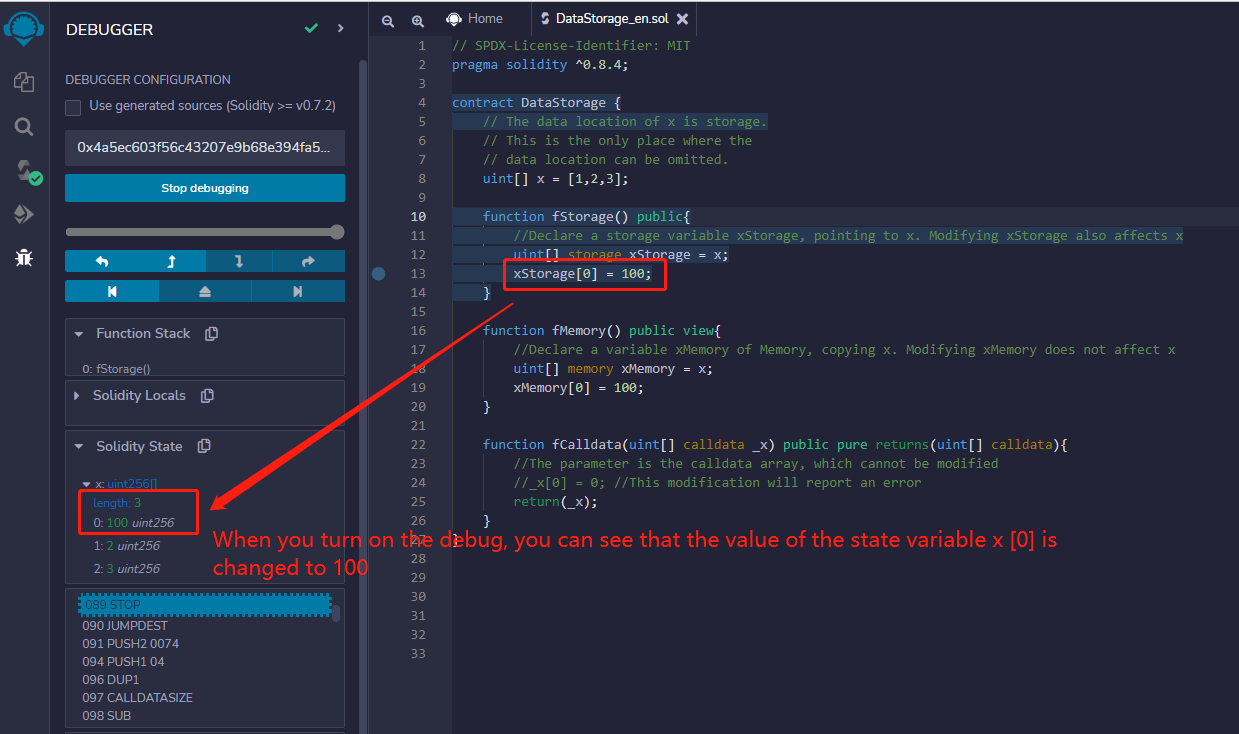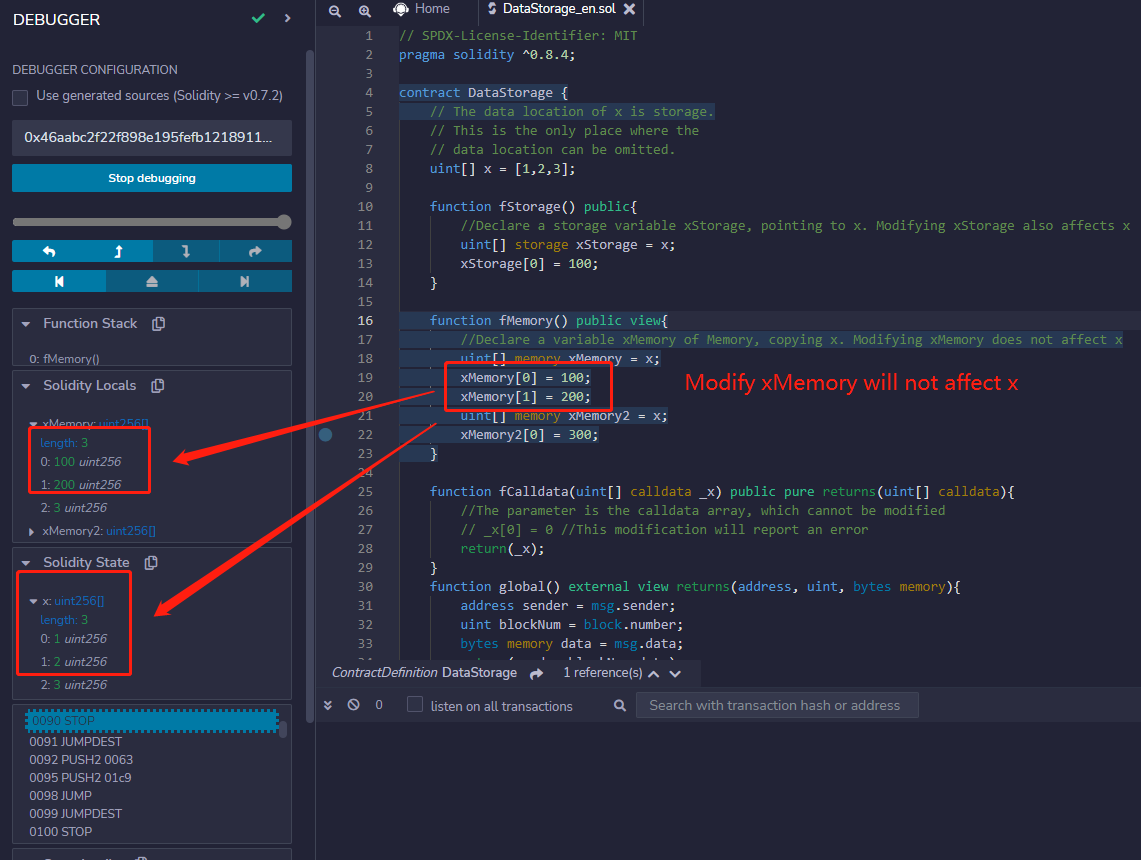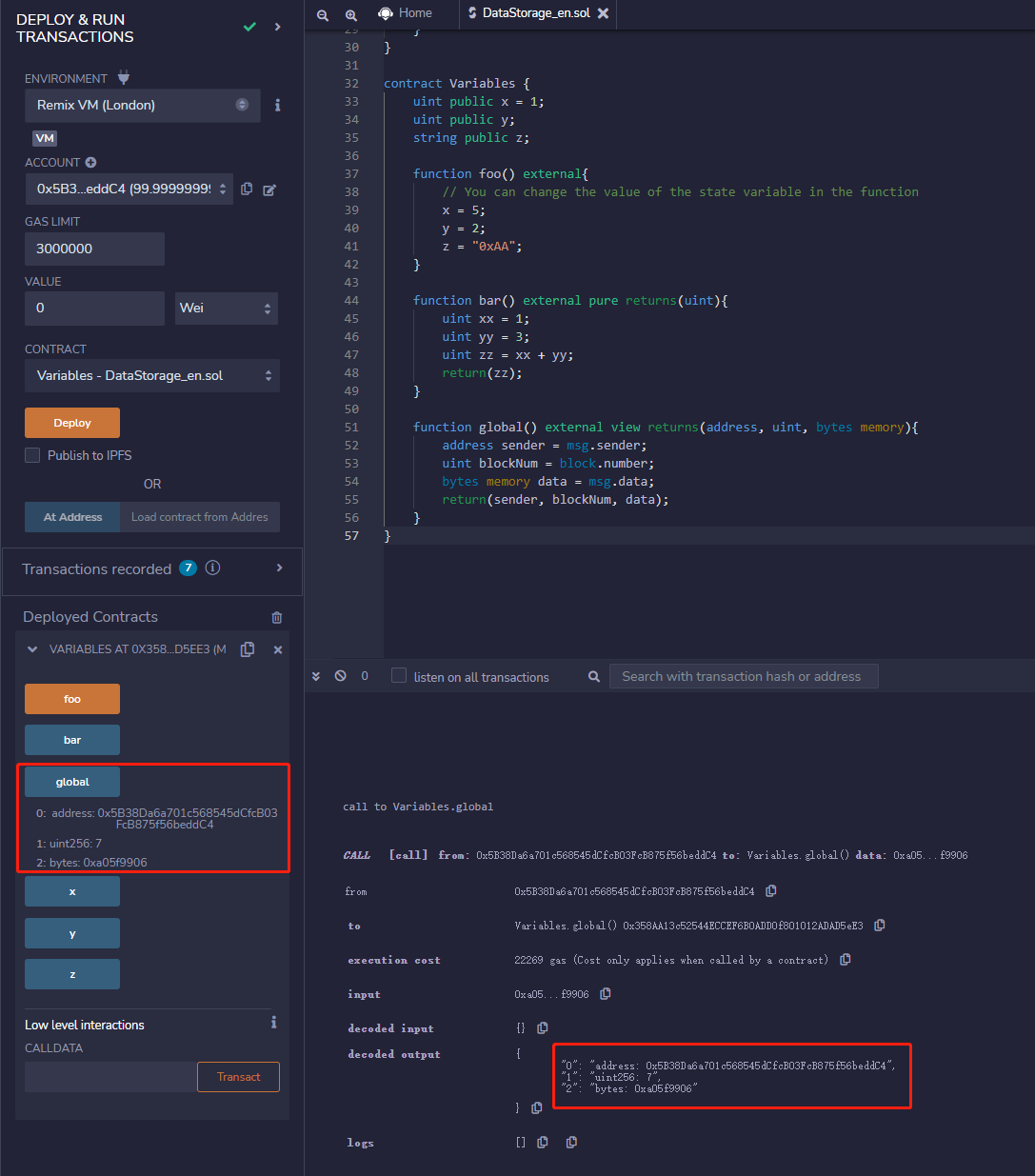WTF Solidity: 5. Data Storage and Scope
Recently, I have been relearning Solidity, consolidating the finer details, and also writing a "WTF Solidity Tutorial" for newbies to learn. Lectures are updated 1~3 times weekly.
Everyone is welcomed to follow my Twitter: @0xAA_Science
WTF Academy Discord: Link
All codebase and tutorial notes are open source and available on GitHub (At 1024 repo stars, course certification is unlocked. At 2048 repo stars, community NFT is unlocked.): github.com/AmazingAng/WTFSolidity
Reference types in Solidity
Reference Type: Reference types differ from value types in that they do not store values directly on their own. Instead, reference types store the address/pointer of the data’s location and do not directly share the data. You can modify the underlying data with different variable names. Reference types array, struct and mapping, which take up a lot of storage space. We need to deal with the location of the data storage when using them.
Data location
There are three types of data storage locations in solidity: storage, memory and calldata. Gas costs are different for different storage locations.
The data of a storage variable is stored on-chain, similar to the hard disk of a computer, and consumes a lot of gas; while the data of memory and calldata variables are temporarily stored in memory, consumes less gas.
General usage:
storage: The state variables arestorageby default, which are stored on-chain.memory: The parameters and temporary variables in the function generally usememorylabel, which is stored in memory and not on-chain.calldata: Similar tomemory, stored in memory, not on-chain. The difference frommemoryis thatcalldatavariables cannot be modified, and is generally used for function parameters. Example:
function fCalldata(uint[] calldata _x) public pure returns(uint[] calldata){
//The parameter is the calldata array, which cannot be modified.
// _x[0] = 0 //This modification will report an error.
return(_x);
}
Example:

Data location and assignment behaviour
Data locations are not only relevant for persistency of data, but also for the semantics of assignments:
- When
storage(a state variable of the contract) is assigned to the localstorage(in a function), a reference will be created, and changing value of the new variable will affect the original one. Example:
uint[] x = [1,2,3]; // state variable: array x
function fStorage() public{
//Declare a storage variable xStorage, pointing to x. Modifying xStorage will also affect x
uint[] storage xStorage = x;
xStorage[0] = 100;
}
Example:

- Assigning
storagetomemorycreates independent copies, and changes to one will not affect the other; and vice versa. Example:
uint[] x = [1,2,3]; // state variable: array x
function fMemory() public view{
//Declare a variable xMemory of Memory, copy x. Modifying xMemory will not affect x
uint[] memory xMemory = x;
xMemory[0] = 100;
}
Example:

Assigning
memorytomemorywill create a reference, and changing the new variable will affect the original variable.Otherwise, assigning a variable to
storagewill create independent copies, and modifying one will not affect the other.
Variable scope
There are three types of variables in Solidity according to their scope: state variables, local variables, and global variables.
1. State variables
State variables are variables whose data is stored on-chain and can be accessed by in-contract functions, but their gas consumption is high.
State variables are declared inside the contract and outside the functions:
contract Variables {
uint public x = 1;
uint public y;
string public z;
We can change the value of the state variable in a function:
function foo() external{
// You can change the value of the state variable in the function
x = 5;
y = 2;
z = "0xAA";
}
2. Local variable
Local variables are variables that are only valid during function execution; they are invalid after function exit. The data of local variables are stored in memory, not on-chain, and their gas consumption is low.
Local variables are declared inside a function:
function bar() external pure returns(uint){
uint xx = 1;
uint yy = 3;
uint zz = xx + yy;
return(zz);
}
3. Global variable
Global variables are variables that work in the global scope and are reserved keywords for solidity. They can be used directly in functions without declaring them:
function global() external view returns(address, uint, bytes memory){
address sender = msg.sender;
uint blockNum = block.number;
bytes memory data = msg.data;
return(sender, blockNum, data);
}
In the above example, we use three global variables: msg.sender, block.number and msg.data, which represent the sender of the message (current call), current block height, and complete calldata.
Below are some commonly used global variables:
blockhash(uint blockNumber): (bytes32) The hash of the given block - only applies to the 256 most recent block.block.coinbase: (address payable) The address of the current block minerblock.gaslimit: (uint) The gaslimit of the current blockblock.number: (uint) Current block numberblock.timestamp: (uint) The timestamp of the current block, in seconds since the unix epochgasleft(): (uint256) Remaining gasmsg.data: (bytes calldata) Complete calldatamsg.sender: (address payable) Message sender (current caller)msg.sig: (bytes4) first four bytes of the calldata (i.e. function identifier)msg.value: (bytes4) number of wei sent with the message
Example:

Summary
In this chapter, we introduced reference types, data storage locations and variable scopes in solidity. There are three types of data storage locations: storage, memory and calldata. Gas costs are different for different storage locations. The variable scope include state variables, local variables and global variables.